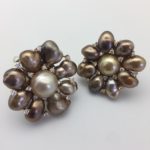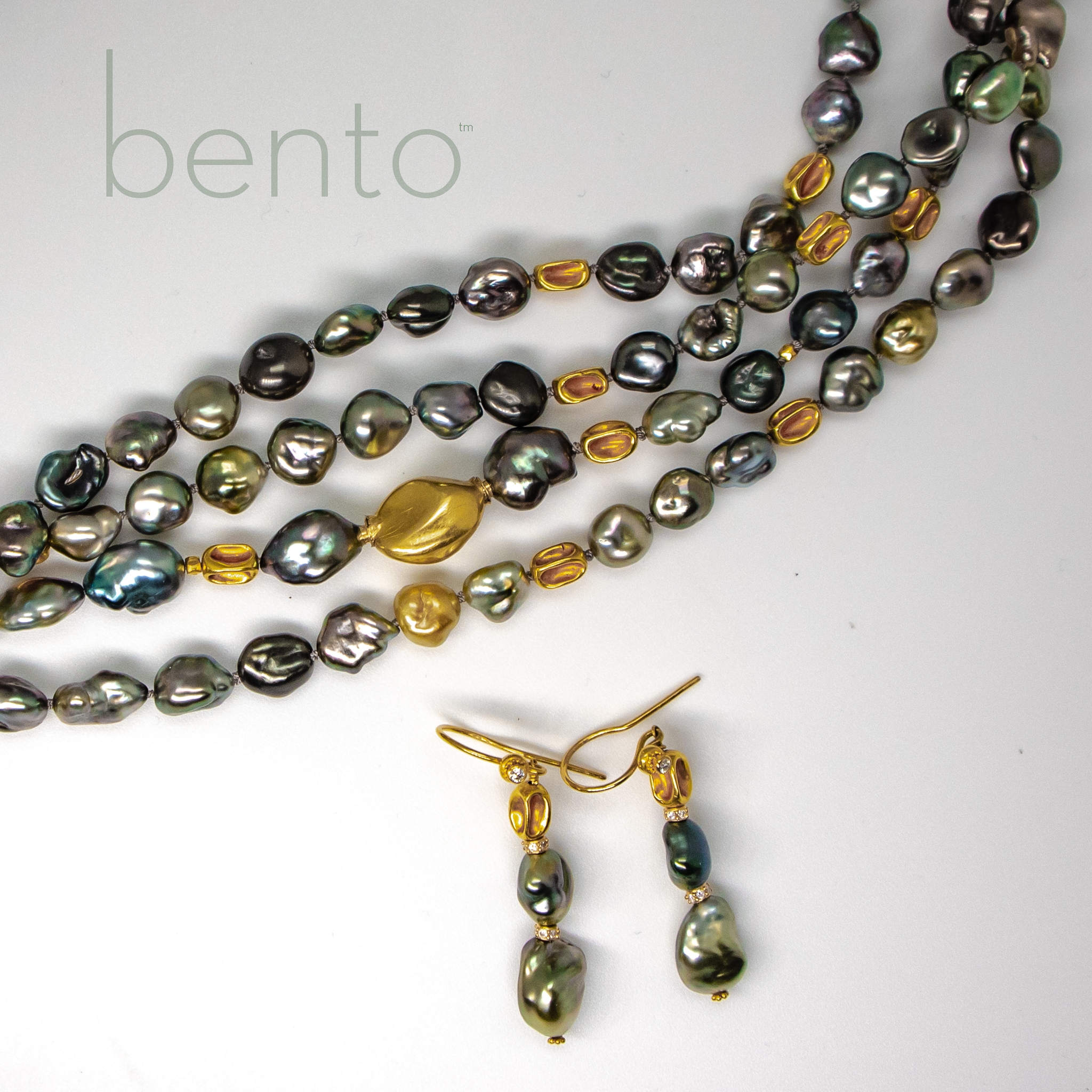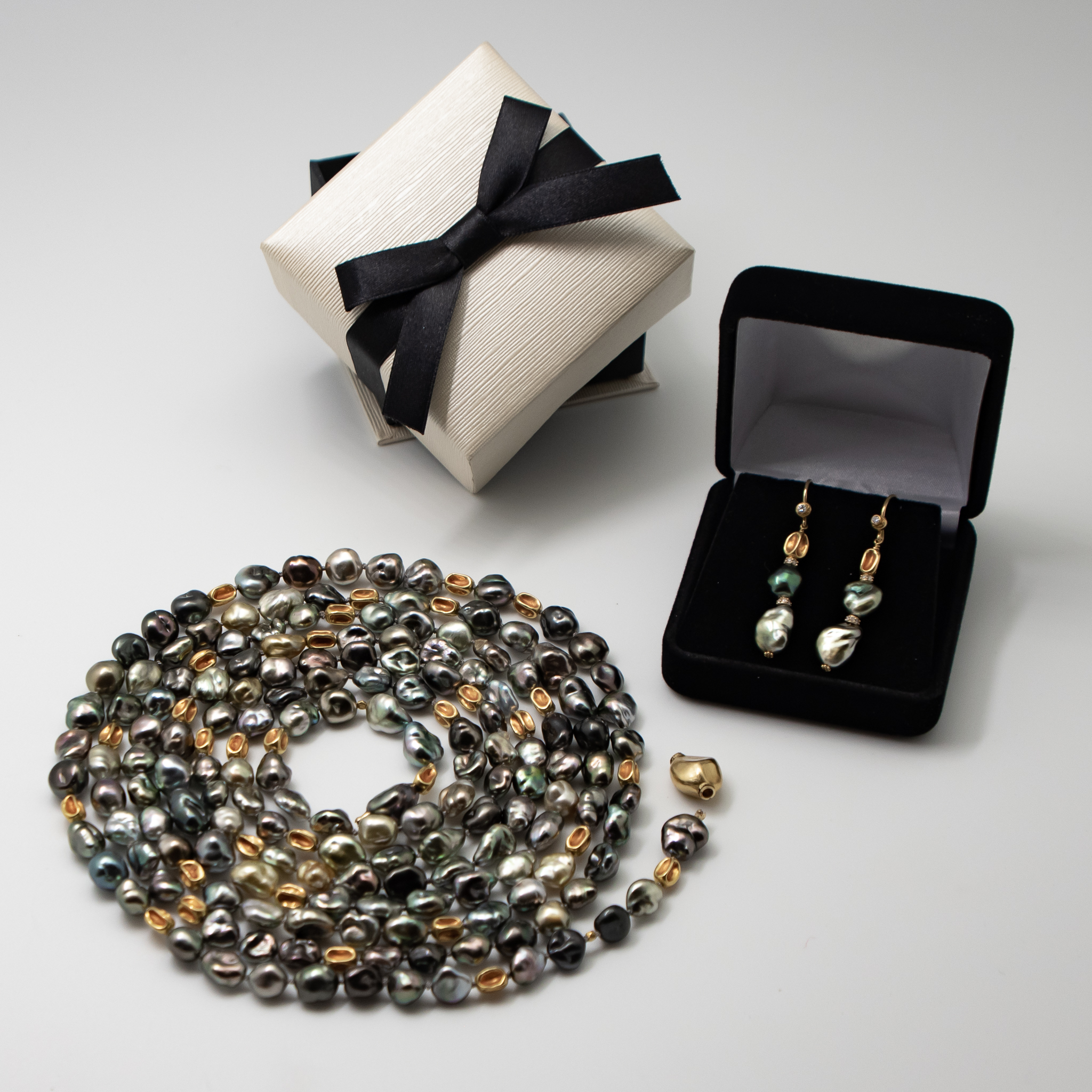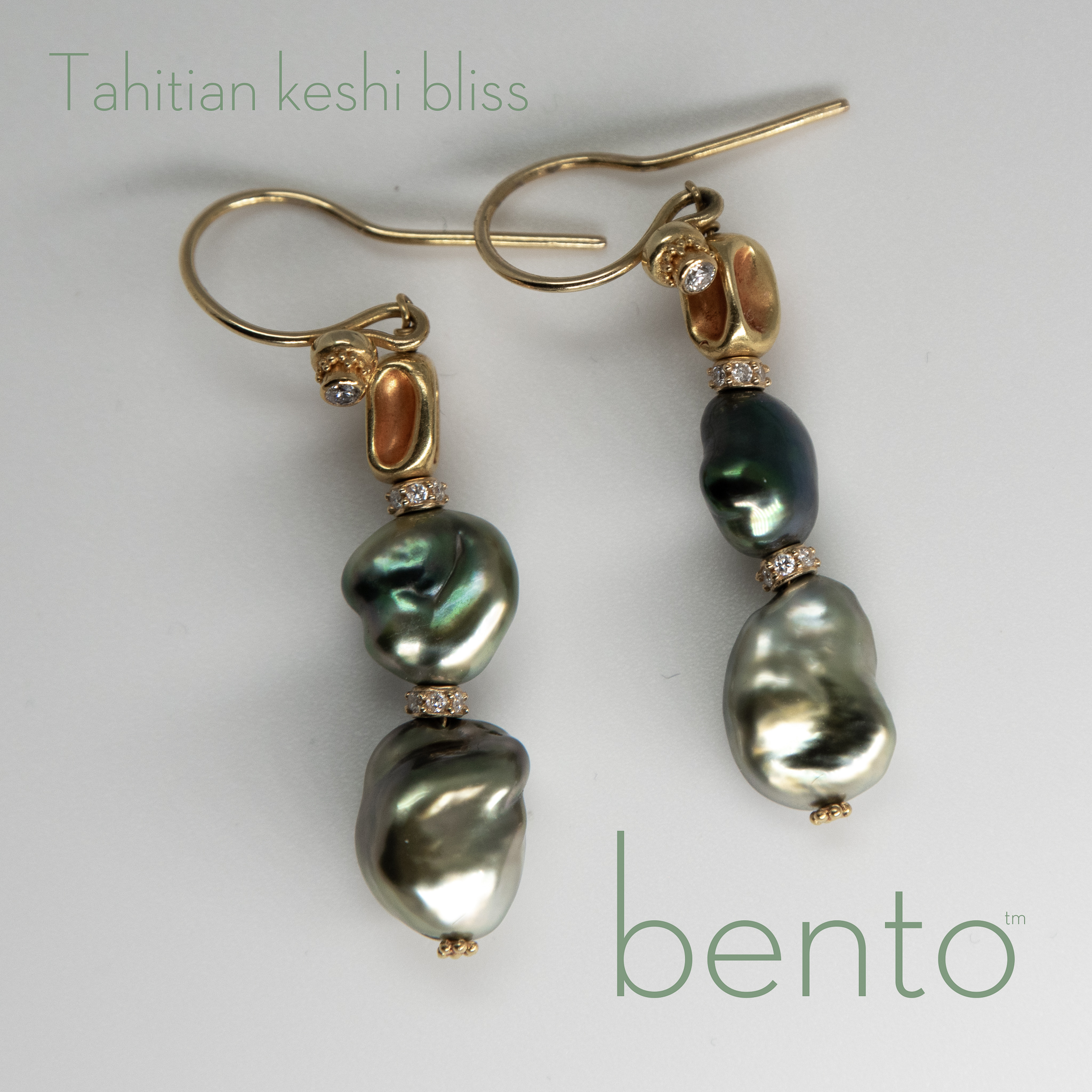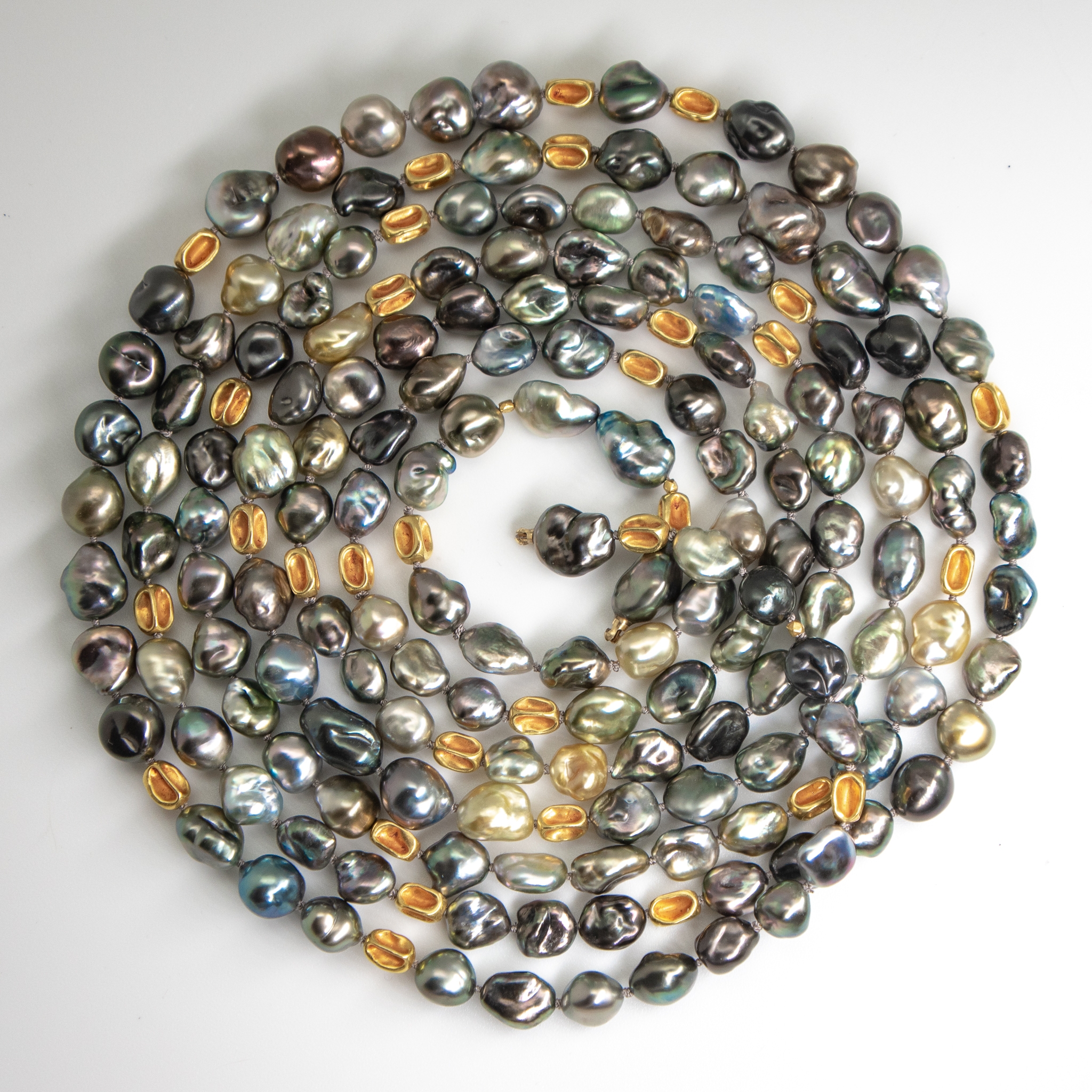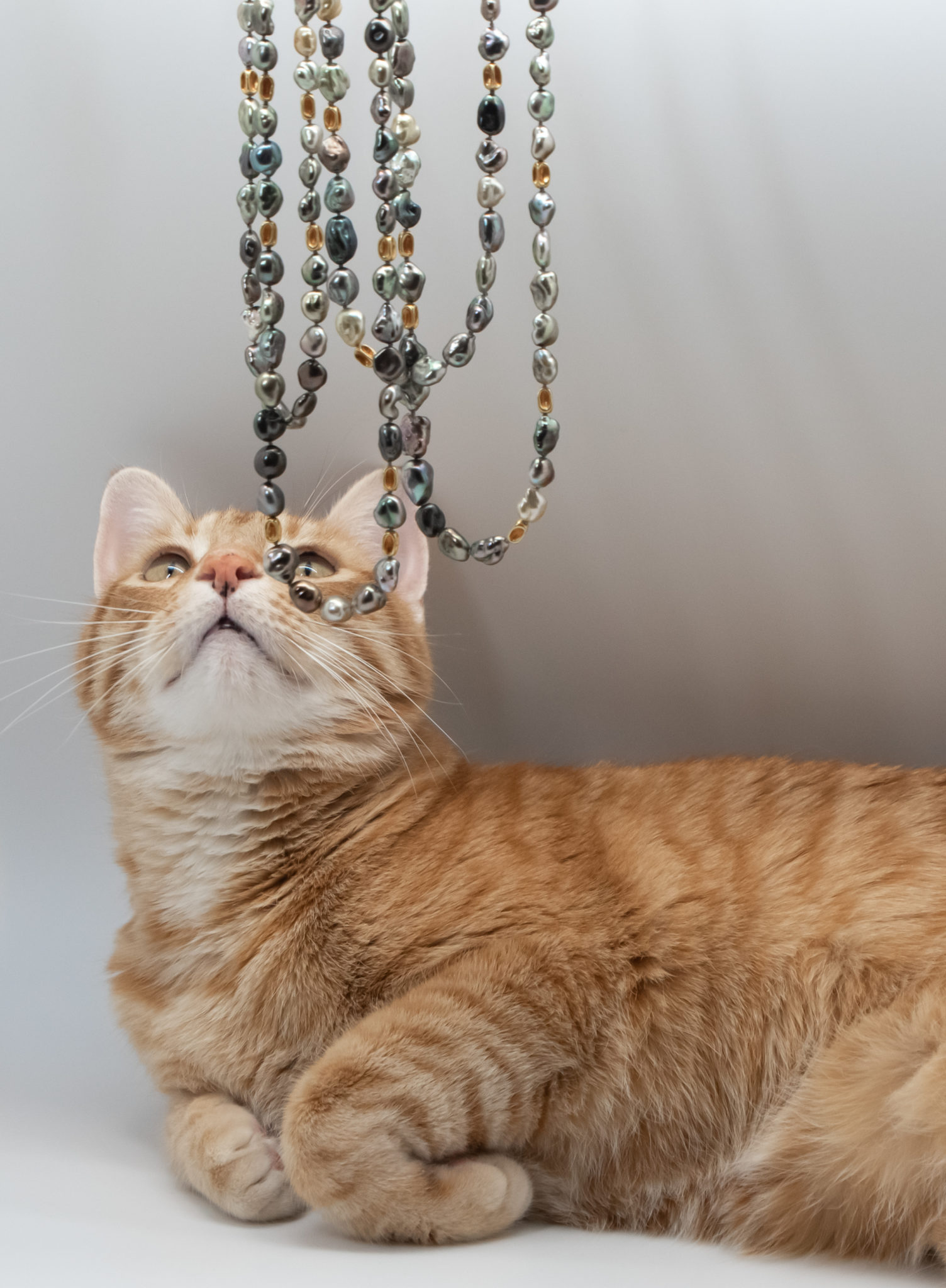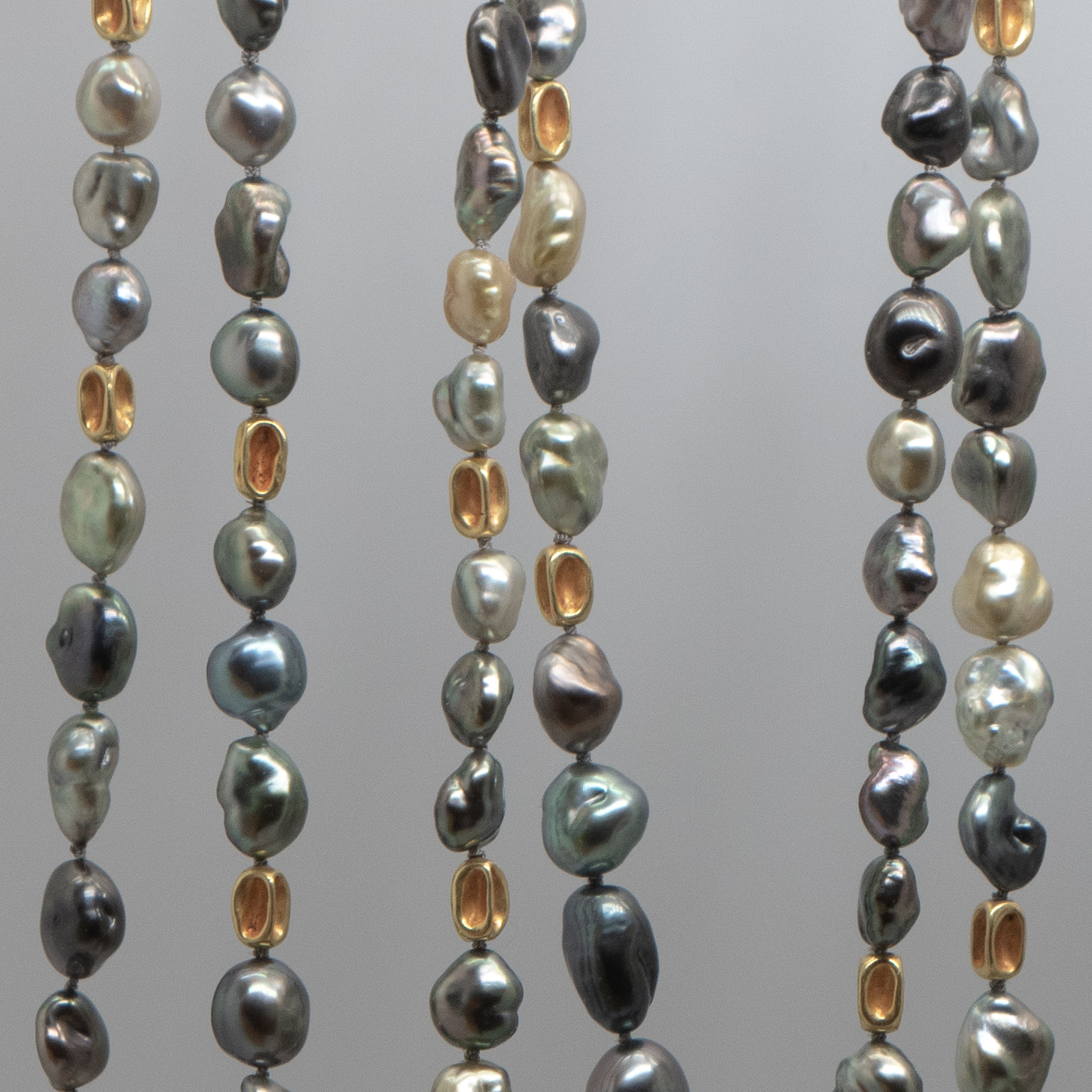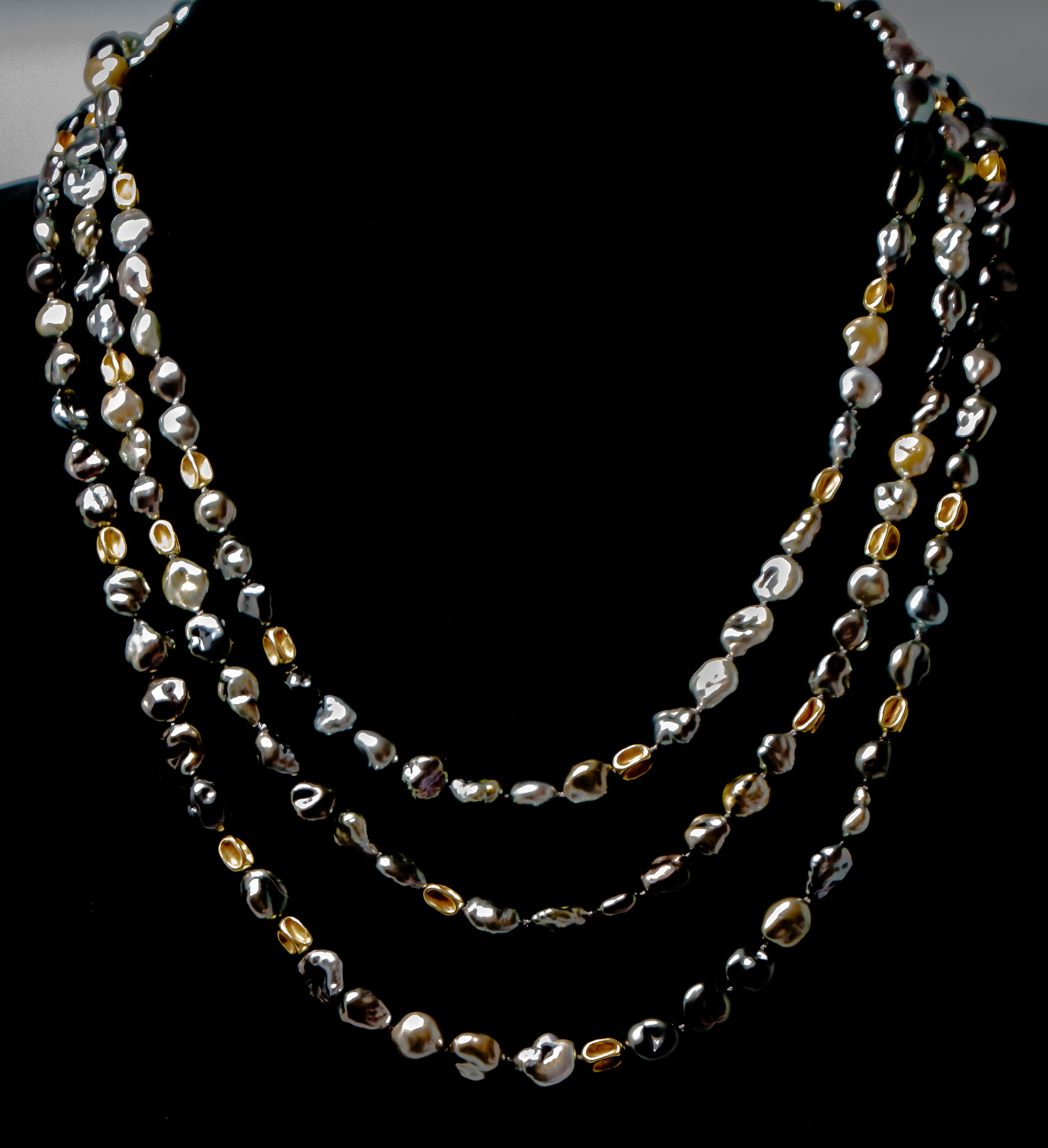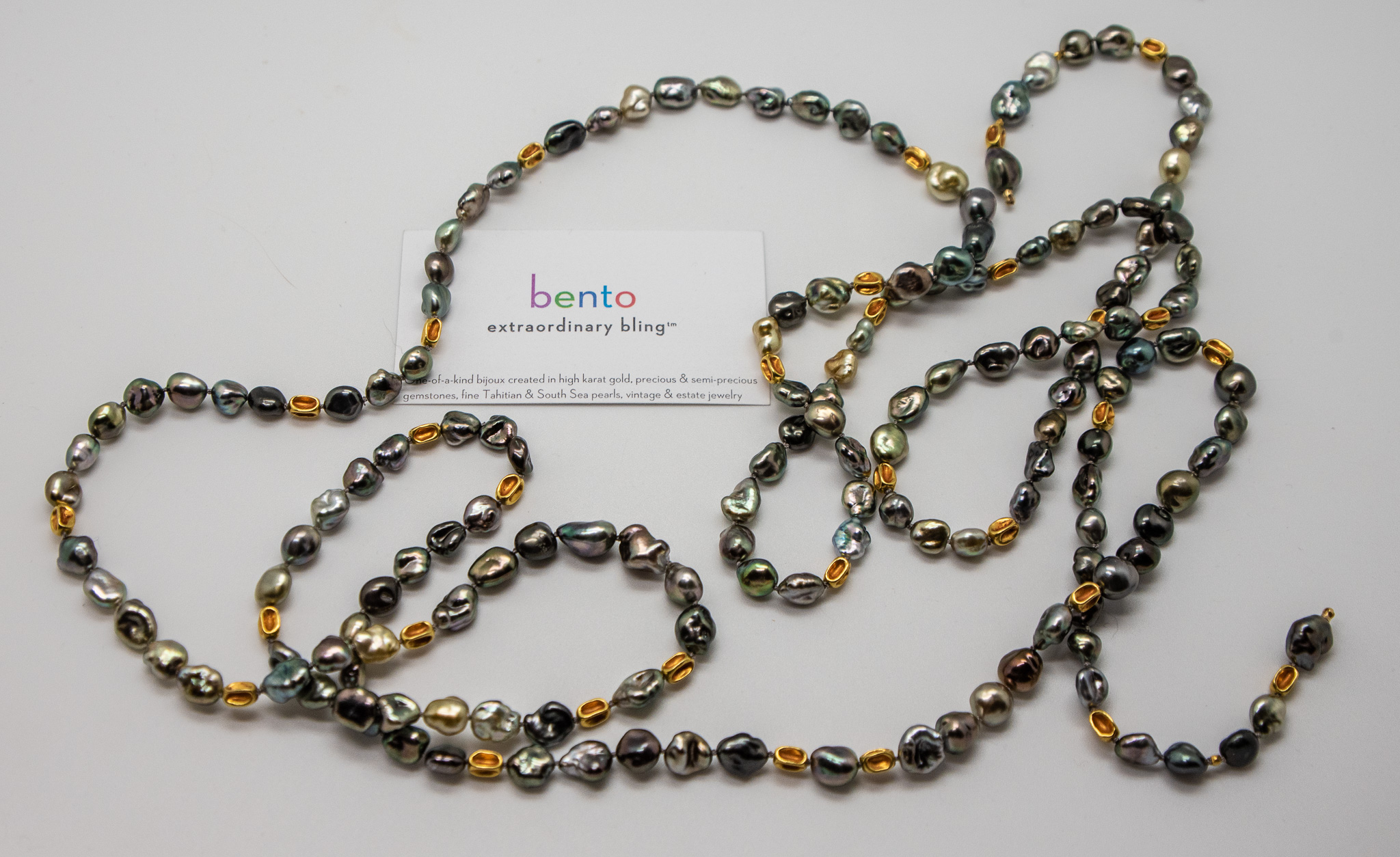Eighty five Inches of Tahitian 'Keshi' Pearls with 18K gold beads and Clasp
Boardroom ready, this Tahitian keshi pearl necklace is powerful, yet understated. Measuring eighty five inches in length, this necklace can wrap two, three, four, maybe even five times around your neck for a multitude of sophisticated looks. Special knotting ensures that this strand will not stretch, while retaining the classic finish of individually knotted pearls on silk. Solid 18K yellow gold beads are peppered at random throughout the strand to impart the richness of gold, contrasting with the multi-colored pearls which are colored from black to gray and pistachio. These pearls are solid nacre with no beaded nucleus and are considered a bonus of the marine pearl culturing process. The beautiful baroque shapes and pure nacre of these pearls is certainly special and it is amazing to see four strands of pearls of this high quality joined into one. It doesn't get any better than this!
designer: atelier bento
details:
- necklace length: 85 inches
- pearl size: average 7mm x 9mm baroque keshi
- pearls: 157 Tahitian "keshi" (solid nacre) pearls
- source: French Polynesia
- oyster: Pinctada margaritifera (black lip oyster)
- quality: AAA, excellent lustre
- oyster type: Tahitian Black Lip Oyster
- gold beads: 31 shaped 18K yellow gold beads
- gold beads source: India
- marks: bento
$16,700
item: N 00030 & E 00009
availability: one-of-a-kind
CONTACT: 520-906-7187
about Tahitian Pearls:
Exotic black pearls from the Pinctada margaritifera or black-lip pearl oyster, are more commonly known as Tahitian pearls. These pearls actually exhibit the widest spectrum of natural colors of any salt water pearl from almost black to peacock green, eggplant pistachio silver, blue and sometimes almost white. Tahitian pearls are relative newcomers to the cultured pearl world, popularized only as early as the mid-1970's by the efforts of Jean Claude Brouillet, Salvador Assael, Robert Wan and others.
Unlike the classic light Japanese akoya pearl, Tahitian pearls are much larger (up to 20mm) and typically have a naturally dark body color. These pearls have become some of the most sought-after, expensive pearls in the world. Because of their vast color range, matching these pearls into a finished strand is an enormous task requiring thousands of loose pearls to create a single strand. Tahitian pearls are considered to be the second most valuable commercially farmed pearls in the world. Tahitian cultured pearls are bead-nucleated, but unlike akoya pearls, the nacre is typically very thick. The thinnest nacre allowed by French Polynesian law for export is 0.8 mm, which is a depth that would be considered, in the Akoya world, extremely thick.
about Keshi:
If a pearl is the champagne, then keshi are the bubbles. Keshi (ケシ, 芥子) means "poppy" in Japanese and is a perfect name for the naturally tiny poppy seed sized pearls of pure nacre that are the happy consolation prize of saltwater pearl culturing (some amazing single strands of Japanese Akoya keshi pearls can have over 1000 pearls!). Since keshi pearls are 100% nacre, they usually exude an incredibly lustrous shine. Most properly used to refer to the tiny seed pearls of the Japanese Akoya saltwater pearl oyster, Pinctada fucata martensii, the term has evolved to include pure nacre pearls from other saltwater pearl oysters as well. Some from Tahitian and South Sea pearls can be much larger than the Akoyas. (Keshi is never an appropriate term to use when referring to freshwater pearls, despite the fact that they are almost exclusively a pure nacre pearl) When you hear the term "keshi", make sure it is a salt-water pure nacre pearl.
Read more about keshi:
YOU MAY ALSO LOVE:
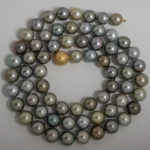
Opera Night
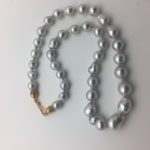
South Seas Idyll
CONTACT: 520-906-7187
